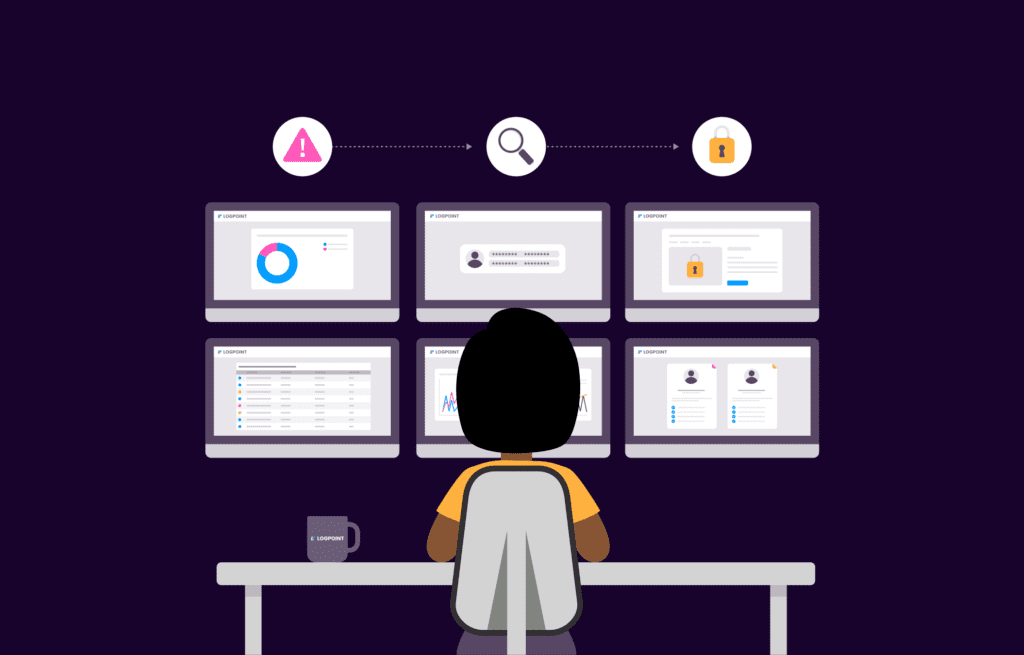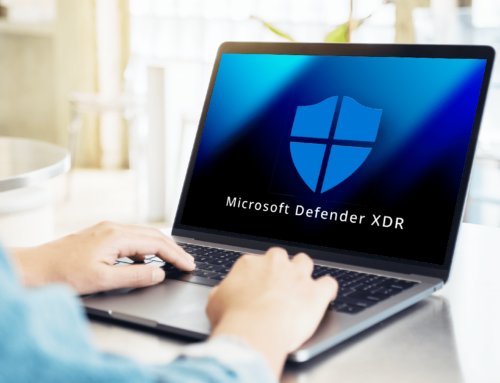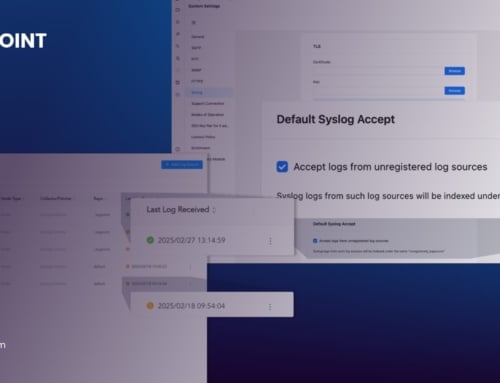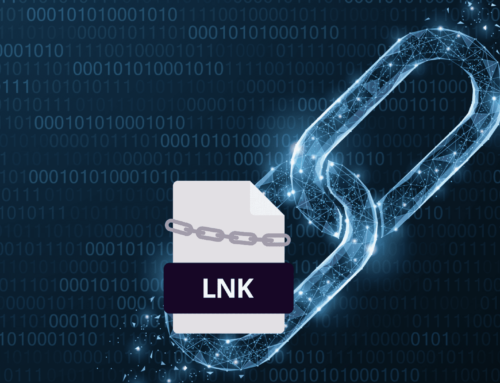In today’s interconnected world, the risk of cyber threats and attacks is ever-present. The escalating frequency and sophistication of cyberattacks have made it imperative for organizations to build robust Cyber Security SOC (Security Operations Center) teams. A well-structured SOC team acts as the first line of defense, continuously monitoring and responding to potential security incidents to minimize the impact of cyber threats on an organization’s assets and reputation. This article will guide you through the process of building a highly effective Cyber Security SOC team to safeguard your organization’s digital assets.

Go To Section
Understanding the Significance of a Cyber Security SOC Team
A Cyber Security SOC team is a group of skilled cybersecurity professionals dedicated to actively monitoring an organization's IT infrastructure and digital ecosystem. Their primary mission is to detect, analyze, and respond to security incidents in real time, thereby minimizing the potential damage caused by cyberattacks.
Key Roles within a Cyber Security SOC Team
| Role | Description |
| SOC Analysts | Monitor security alerts and conduct initial investigations |
| Threat Hunters | Proactively search for threats and vulnerabilities |
| Incident Responders | Handle and mitigate active security incidents |
| Security Engineers | Maintain and optimize security tools and infrastructure |
| SOC Manager | Oversee team operations and coordinate with other departments |
Building an Effective Cyber Security SOC Team
Constructing a successful Cyber Security SOC team requires a strategic and systematic approach. Building a SOC team is a vital step, having more and more team members does not necessarily equal a stronger SOC team.
Take a look at these examples of how to build a SOC as a strong and efficient team:
Define Clear Roles and Responsibilities
This is the foundation of an effective SOC team. Each team member must understand their specific duties and how they contribute to the overall security objectives. This clarity enhances communication and streamlines incident response efforts.
Recruit and Retain Top Cybersecurity Talent
Hiring the right individuals with the appropriate skill sets is paramount for the SOC team's success. Look for candidates possessing relevant certifications such as CISSP (Certified Information Systems Security Professional), CEH (Certified Ethical Hacker), and CompTIA Security+. Additionally, emphasize the importance of fostering a supportive work environment to retain top talent and encourage continuous skill development.
Provide Continuous Training and Professional Development
The field of cybersecurity evolves rapidly, and it's essential to provide continuous training and professional development opportunities for your SOC team. Encourage team members to attend workshops, conferences, and online courses to stay updated on the latest cybersecurity trends, threat vectors, and defensive strategies.
Foster Collaboration and Communication
Effective communication and collaboration are pivotal for a well-functioning SOC team. Establish channels that facilitate seamless information sharing among team members and other departments. Regular meetings and cross-training initiatives enhance the team's overall cohesiveness and ability to respond quickly to security incidents.
Implement Advanced Security Tools
Equipping your SOC team with state-of-the-art security tools enhances their efficiency and efficacy. Sophisticated tools, such as SIEM (Security Information and Event Management), threat intelligence platforms, and automation tools (SOAR), play pivotal roles in monitoring, analyzing, and responding to security incidents.
Furthermore, consolidated platforms are the way forward for the SOC. With Logpoint Converged SIEM, SIEM fits seamlessly with SOAR, UEBA, and more in one platform. Converged SIEM helps SOC teams combine data sets from multiple sources. Instead of using multiple standalone products, they now have one single source of truth. It's the only unified platform that delivers SIEM+SOAR, UEBA, EDR capabilities and security monitoring of SAP systems for both enterprises and MSSPs.
The benefits of a converged platform include full data integration for automated TDIR, no integration or maintenance, out-of-the-box compliance support, and flexible deployment based on your needs.
Practice Regular Drills and Simulations
Some companies feel these are invaluable for testing the SOC team's capabilities, refining incident response procedures, and identifying areas for improvement. These exercises provide hands-on experience and help the team stay well-prepared for real-world cybersecurity challenges.
The Benefits of a Well-Established Cyber Security SOC Team
Investing in a competent Cyber Security SOC team offers numerous advantages for an organization:
Swift Incident Detection and Response: The proactive monitoring and rapid response capabilities of a well-established SOC team enable early detection and containment of security incidents, reducing their potential impact.
Reduced Downtime and Financial Losses: A swift and efficient SOC response minimizes operational downtime, mitigates financial losses, and protects the organization's bottom line.
Enhanced Compliance and Data Protection: Compliance with industry regulations and data protection standards is crucial. A competent SOC team ensures that the organization adheres to these standards, safeguarding its reputation and avoiding penalties.
Improved Incident Management: The ability to handle security incidents effectively improves the organization's overall cybersecurity resilience. Skilled SOC teams can limit the extent of damage caused by cyberattacks and prevent their escalation.
Proactive Threat Hunting: With the help of threat intelligence and proactive hunting techniques, SOC teams can identify potential threats before they materialize into full-fledged attacks, bolstering the organization's security posture.
Strengthened Organizational Reputation: A strong commitment to cybersecurity and a well-functioning SOC team demonstrate reliability and dedication to clients and stakeholders, enhancing the organization's reputation in the marketplace.

How Logpoint Empowers Building and Maintaining a Strong SOC Team
Building and maintaining a strong SOC team requires the right combination of skilled professionals, efficient processes, and powerful cybersecurity tools. One such tool that greatly contributes to the success of a SOC team is Logpoint Converged SIEM. Logpoint is specifically designed to streamline and enhance the capabilities of cybersecurity operations, making it an invaluable asset for organizations looking to bolster their SOC team's efficiency and effectiveness.
Comprehensive and Real-time Data Analysis
Logpoint enables SOC teams to gain deep insights into their organization's security posture by providing comprehensive and real-time data analysis. The platform collects and correlates vast amounts of security-related data from various sources, such as network devices, servers, applications, and endpoints. This unified view allows the SOC team to detect patterns, identify anomalies, and swiftly respond to potential threats.
Automated Threat Detection and Response
Logpoint's advanced automation capabilities empower SOC teams to streamline their incident detection and response processes. The platform automatically analyzes incoming data and alerts, allowing the team to focus on investigating and mitigating high-priority threats. With automated incident response workflows, the SOC team can respond to security incidents promptly and consistently, reducing the mean time to detect (MTTD) and mean time to respond (MTTR).
Proactive Threat Hunting
Logpoint supports proactive threat hunting, enabling SOC teams to search for potential threats and vulnerabilities before they become critical issues. The platform's intuitive search and query functions allow analysts to dig deep into historical data, identify hidden patterns, and detect suspicious activities that may go unnoticed by other security tools. This proactive approach ensures that SOC teams stay one step ahead of potential attackers and enhances the organization's overall security posture.
Additionally, our own security research team utilizes all of the functions of Converged SIEM to threat hunt and analyze emerging threats. To view the latest Emerging Threats Report click HERE or head over to the blog and take a look at all of our Emerging Threats Reports.
You can also take a look at the Playbook Design Service: Logpoint's Playbook Design Service helps organizations add efficiency, precision, and automation to their incident response processes.
User Entity and Behavior Analytics (UEBA)
Understanding user behavior is essential for detecting insider threats and advanced persistent threats (APTs). Logpoint's User Entity and Behavior Analytics (UEBA) capabilities leverage machine learning algorithms to identify unusual user activities, anomalous login patterns, and potential insider threats. By creating baseline behavior profiles for each user, the SOC team can swiftly detect suspicious activities and prevent unauthorized access.
Advanced Threat Intelligence Integration
Logpoint integrates with external threat intelligence feeds, providing SOC teams with up-to-date information on emerging threats and malicious actors. By enriching their data with threat intelligence, SOC teams can better prioritize alerts and respond to potential threats with greater accuracy. Additionally, this integration helps identify patterns associated with known threat actors, enhancing proactive threat-hunting capabilities.
Compliance and Reporting
Compliance with industry regulations and data protection standards is a critical aspect of cybersecurity. Logpoint assists SOC teams in maintaining compliance by generating comprehensive and customizable compliance reports. These reports can be tailored to meet the specific requirements of auditors, regulators, and internal stakeholders, simplifying the compliance process and providing evidence of adherence to security best practices.
Customizable Dashboards and Visualizations
Effective data visualization is crucial for SOC teams to quickly grasp the security status of their organization. Logpoint offers customizable dashboards and visualizations, enabling SOC analysts to present complex data in an intuitive and actionable format. These visually appealing dashboards provide real-time insights into security events, allowing the SOC team to make informed decisions swiftly.
Scalability and Flexibility
As organizations grow and adapt, their cybersecurity needs evolve accordingly. Logpoint offers scalability and flexibility to cater to organizations of all sizes. Whether an organization is a small business or a multinational enterprise, Logpoint can be tailored to meet the specific requirements of the SOC team, ensuring that the platform continues to provide value as the organization's cybersecurity needs evolve.
Conclusion
A strong and efficient SOC team is essential for safeguarding an organization's digital assets and reputation in today's cyber-threat landscape. Logpoint, as a powerful SIEM solution, plays a pivotal role in empowering SOC teams with comprehensive data analysis, automated threat detection and response, proactive threat hunting, user behavior analytics, threat intelligence integration, compliance reporting, customizable dashboards, and scalability. By harnessing the capabilities of Logpoint, organizations can build and maintain a SOC team that is well-equipped to identify, mitigate, and respond to cybersecurity threats effectively, ensuring the security and resilience of their digital infrastructure.
In today's cyber threat landscape, the significance of a robust Cyber Security SOC team cannot be overstated. By defining clear roles and responsibilities, recruiting top cybersecurity talent, and providing continuous training, organizations can build an effective SOC team that acts as a shield against digital threats.
Implementing advanced security tools and fostering collaboration and communication are pivotal for maximizing the SOC team's efficiency and efficacy. Regular drills and simulations ensure the team remains well-prepared for real-world incidents, thereby minimizing potential damage and downtime.
The benefits of a well-established Cyber Security SOC team extend beyond incident response; they reinforce the organization's overall cybersecurity resilience and reputation. As cyber threats continue to evolve, investing in a skilled and proficient SOC team becomes an indispensable part of an organization's cybersecurity strategy, safeguarding digital assets and securing a prosperous future in the digital age.






